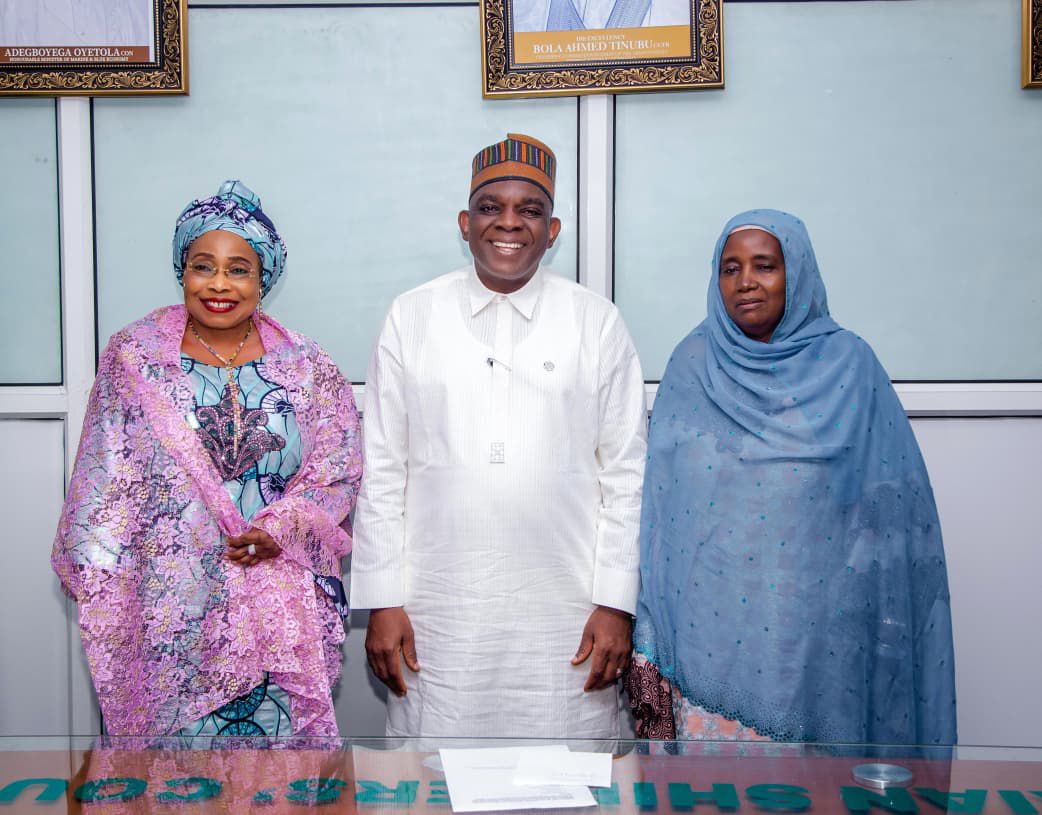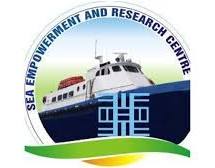Maritime
Shippers’ Council, NAPTIP Seek Inter-agency Synergy To Fight Human Trafficking

BY FUNMI ALUKO
The Executive Secretary/Chief Executive Officer (CEO) of Nigerian Shippers’ Council (NSC), Dr. Pius Akutah, has called for inter-agency and multi-sectoral collaborations to combat the rising incidents of human trafficking and stowaways in the nation’s marine and blue economy sector.
Describing the menace as transnational organized crime, he said it accounts for global loss of over a $100 million annually, saying the crime began to grow in Africa in the last 10 years, taking a dangerous form.
He stated this while receiving in his Abuja office the leadership of the National Agency for Prohibition of Trafficking in Persons (NAPTIP) and MMS WoFHoF Initiative, an NGO, for a courtesy visit to explore collaboration to combat human trafficking by sea.
The visit, which is one of many in the offing, as an engagement tool and means of rallying relevant agencies, ministries and stakeholders in the marine and blue economy sector, was facilitated by MMS WoFHoF Initiative on the strength of the partnership it had reached with NAPTIP to help combat the menace of human trafficking by sea and gender-based violence.
Sharing compelling narratives on how he had handled human trafficking cases as a prosecutor for the nation in the past, Akutah affirmed that NAPTIP Act of 2003 derived its source from the transnational organized crimes convention 2000, which Nigeria is a signatory.
Reaffirming that NAPTIP was one of the agencies that was set up to deal with different aspects of criminal activities that Nigeria was trying to fight, he said, “The menace has become something we should all join hands together to combat because it leads to a lot of criminal activities.
“The maritime sector is not left out of this, stowaway is a veritable means of transporting victims to other countries. You know, before now, they used land transport.
“Now, stowaways have become a major means of transporting these people-victims, to where they are needed. So, we thank God that we are bringing this awareness at the right time, when our Minister, the Minister of Marine and Blue Economy, His Excellency, Adegboyega Oyetola, the first Minister for the ministry, who is a determined leader, is looking at ways to make the maritime sector better.
He said the Minister had spoken eloquently and in strong terms against sexual harassment within the sector, especially on board ships at a stakeholders’ engagement forum organized by a sister agency to create awareness on sexual harassment within the maritime sector.
According to Akutah, “I think this is one issue that the Minister will take very seriously. As the port economic regulatory agency in the sector, we are concerned about the port economy, and these are criminal activities that also destroy the economy of the port.
“So, it is also within our mandate to go into this partnership with your agency-NAPTIP and your partnering NGO-MMS WoFHoF, and we are committed to that partnership going forward.
“Within the port sector, we have many other agencies that are very material in this struggle. NIMASA is one of them. They are assigned the responsibility of maritime security and safety; they are also a very important partner that you can work together with.” He noted.
To NAPTIP, the visit was part of the strategic engagements of its Director General with critical agencies of government and partners across the country aimed at enhancing inter-agency collaboration in the fight against human trafficking in Nigeria.

Speaking during the visit, the NAPTIP Director-General, Hajia Binta Adamu Bello, who described the Nigerian Shippers’ Council as a critical partners, disclosed that due to the intense heat on traffickers on the land borders by operatives of NAPTIP, some of the traffickers have now resorted to using the waterways to traffic their victims.
The NAPTIP Boss said, “As a maritime regulatory body, the NSC oversees critical gateways to the nation’s trade and transportation systems, gateways that are unfortunately also exploited by traffickers to move victims clandestinely via vessels and other maritime routes.
“The shipping, ports, and logistics sectors can play a pivotal role in early detection, prevention, and reporting of trafficking activities, making collaboration between NAPTIP and NSC not only strategic but essential.
“NAPTIP is proposing to deepen engagement with the maritime sector in the fight against human trafficking, especially in sensitisation for identification of potential trafficking cases along the waterways and timely reporting to relevant authorities.
“We propose a collaboration targeting port workers, shipping agents, freight forwarders, crew members, and other maritime stakeholders to identify and report suspected trafficking activities using NSC’s outreach structures, the Nigerian Port Process Manual (NPPM) platforms, and Port Standing Task Team (PSTT) channels to integrate anti-trafficking awareness.
“Bearing in mind that the fight against human trafficking requires a united, multi-sectoral approach, and that the maritime sector under the regulatory leadership of NSC is a critical partner in closing the trafficking supply chain, NAPTIP expresses its readiness to formalise collaboration through an MoU or agreed action plan for sustained engagement.
“NAPTIP and NSC can strengthen Nigeria’s maritime security, while protecting vulnerable persons from exploitation”, the NAPTIP DG stated.
MMS Plus reports that a NAPTIP official had recounted with pains how Nigerian victims are dehumanized abroad especially in relative poor countries, saying, ” Just two months ago, we rescued 79 victims from Cote d’voire. 75 of them were young ladies of adult age. The remaining four were children delivered out of their circumstance. And what do they do in Cote d’voire? They take them to mining sites, where they erect tents for them, give them mattresses and pillows. When the men finish the day’s work at mining sites, they go back to the tent and relax and have sexual relationships with the girls. Even the stipend due to them was not paid directly to them. It was paid to them by agency. They were rescued back to Nigeria with collaboration from security agencies and Air Peace management.
To stem national disgrace of this kind, the NAPTIP boss added,” This is why we need the Council to ensure that we have good understanding, so that we can combat this transnational organized crimes by sea. We know it goes on by land, through the air and through the sea.”
In her remarks, a Hall of Famer and Board of Trustees (BoT) member of the MMS WoFHoF Initiative, a non- governmental organization(NGO), Hajia Lami Tumaka, stated, “The need for collaboration and awareness has become pressing to mitigate risks and financial losses.
“According to the International Maritime Organization (IMO), the global shipping industry lost $8.9 million to 364 stowaway incidents between February 2020 and February 2021.
“We believe your involvement would contribute significantly to mitigating these risks and promoting a sustainable environment for the shipping industry. This aligns with the Nigerian Shippers’ Council’s role as the port economic regulator and her commitment to corporate social responsibility (CSR) sustainability.
Hajia Tumaka called on NSC and other agencies in the maritime sector to collaborate with NAPTIP and MMS WoFHoF Initiative to create a robust domain awareness against human trafficking and stowaway menace.
She added, “We’re here to request your collaboration and endorsement for a One-Day National Policy Dialogue focused on combating human trafficking by sea and stowaway incidents.”
In her words, the dialogue is “Scheduled for 30th October 2025, in Lagos. It aims to address the rising threats to maritime security and the shipping industry.





































